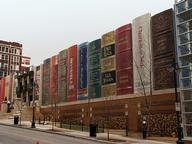Quiz Answer Key and Fun Facts
1. Which of the following most nearly describes the theme of "Intimations of Immortality"?
2. "There was a time when meadow, grove, and stream, / The earth, and every common sight, To me did seem / Apparelled in celestial light, / The glory and the freshness of a" what?
3. What other romantic poet criticized this poem, arguing, "In what sense can the magnificent attributes, above quoted, be appropriated to a child, which would not make them equally suitable to...a dog, or a field of corn: or even to a ship, or to the wind and waves that propel it? The omnipresent Spirit works equally in them, as in the child; and the child is equally unconscious of it as they"?
4. "____ comes and goes, / And lovely is the Rose." What comes and goes?
5. "But yet I know, where'er I go, / That there hath past away a" what "from the earth"?
6. "Now, while the birds thus sing a joyous song, / And while the young lambs bound / As to the tabor's sound, / To me alone there came a thought of" what?
7. "Our birth is but a sleep and a" what?
8. What biography of Confederate General Robert E. Lee, by Michael Korda, takes its title from a phrase in this poem?
9. Although "heaven lies about us in our infancy," eventually "shades of" what "begin to close / Upon the growing Boy"?
10. Which of the following does Wordsworth NOT call the child in this poem?
11. Wordsworth wants to know why the child "with such earnest pains dost...provoke / the years to bring the inevitable" what?
12. "Full soon thy Soul shall have her earthly freight, / And custom lie upon thee with a weight, / Heavy as _____, and deep almost as life!" Heavy as what?
13. "____ of a Creature / Moving about in worlds not realized." What words are missing from this blank?
14. Wordsworth concludes: "Thanks to the human heart by which we live, / Thanks to its tenderness, its joys, and fears, / To me the meanest flower that blows can give / Thoughts that do often lie too deep for" what?
15. Which of the following best describes the form of "Intimations of Immortality"?
Source: Author
skylarb
This quiz was reviewed by FunTrivia editor
looney_tunes before going online.
Any errors found in FunTrivia content are routinely corrected through our feedback system.

